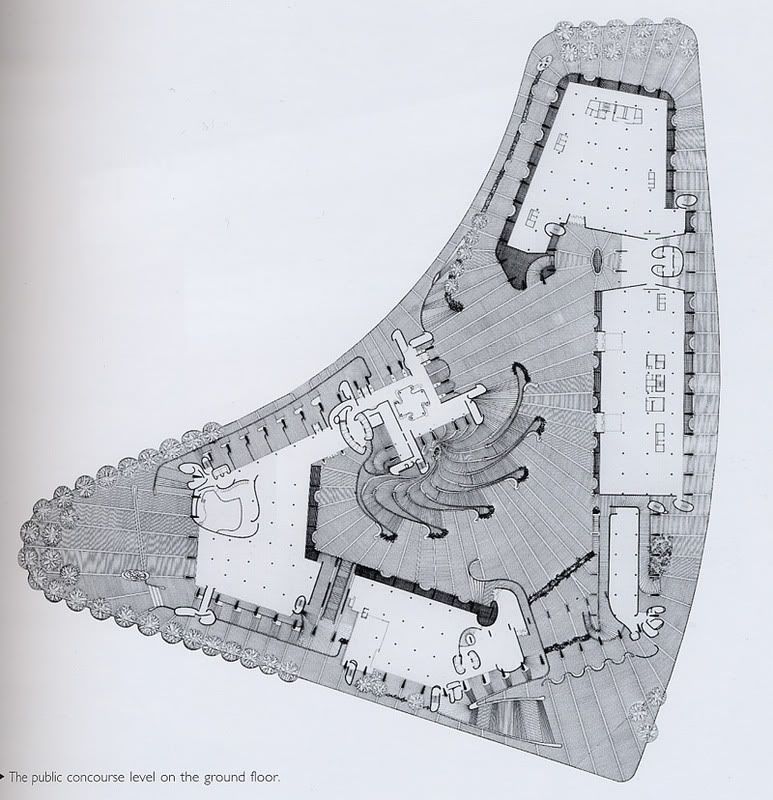South Station rail deal collapses
Developer?s departure jeopardizes T expansion
By Casey Ross and Noah Bierman, Globe Staff | January 7, 2010
A deal to redevelop the US Postal Service?s massive facility near South Station has collapsed, jeopardizing the MBTA?s plans to use part of the sprawling 16 acres to relieve congestion at the terminal and to add commuter rail lines serving Central and Southeastern Massachusetts.
The development team the Postal Service retained in early 2008 abruptly pulled out last month because of financial concerns. That upended a complex deal in which the Postal Service would move to a new facility about 1 mile away, while the developers sold land behind South Station to the MBTA for new tracks and platforms to accommodate additional rail service.
The departure of the private developer means the state will now have to negotiate to acquire the property on its own, a task welcomed yesterday by state Transportation Secretary Jeffrey B. Mullan.
?This is not bad news for the commuter rail at all,?? Mullan said. ?We can now work directly with the Postal Service to better serve the needs of the South Station facility.??
The Postal Service would not comment yesterday. Although it said in a December letter to the state that it was willing to negotiate directly, it established numerous conditions that could be further roadblocks to commuter rail expansion.
The Postal Service demanded assurances that it would incur no cost in building a new mail-sorting facility on Summer Street in South Boston and that the state would pay the fair market value the previous developers had set for the land.
The Postal Service also disclosed that Boston and state officials were pressing it to make what it considers unacceptable changes to its proposed new facility, and it raised the specter of not moving from the old South Station location at all.
?Such a detrimental impact would cause us to suspend any further consideration of relocating the plant until such time as a new and acceptable site could be identified and placed under the Postal Service control,?? Tom Samra, vice president of facilities for the Postal Service, wrote in a letter to Mullan.
The collapse of the deal dismayed Mayor Thomas M. Menino, adding another setback to his plans to jump-start redevelopment of the waterfront. The old Postal Annex, as it is called, sits at a key gateway from downtown Boston to the emerging waterfront district.
?This is a big, sprawling building, and it?s a great opportunity for redevelopment that would provide the city new tax revenues,?? Menino said yesterday.
The MBTA expansion projects now in jeopardy include additional rush-hour service on the Framingham-Worcester line that was expected to begin in 2011 and new service to Fall River and New Bedford scheduled to begin sometime around 2016.
An advocate for T riders said the breakdown of the development deal is a significant setback to the MBTA?s efforts to improve commuter rail service. Unless the T gains access to the property, it cannot add trains to improve service on the Framingham-Worcester line or provide new service to the Fall River-New Bedford region.
?I?m very concerned,?? said Paul Regan, executive director of the MBTA Advisory Board, which represents cities and towns served by the T. ?I think this is the most important commuter rail infrastructure project in Boston, and if it doesn?t happen, it?s going to affect everything else commuter rail does.??
Currently all 13 tracks at South Station are in use during tight rush-hour schedules, with some trains having to wait several minutes outside the station for a platform to open up, said John D. Ray, head of the T?s railroad operations.
Ray said the congestion is manageable, but noted that the MBTA cannot add trains during rush hour until it gets the Postal Service land, where it would add five rail lines.
Regan contended that space constraints at South Station contribute to delays on all commuter lines served out of the terminal.
?The lack of space means a lack of flexibility,?? Regan said. ?One problem with one train then tends to snowball much, much faster, because you have no room for error on the south side.??
The Postal Service wants to relocate to a 25-acre parcel about a mile down Summer Street, on property owned by the US Department of Defense and the Massachusetts Port Authority. In April 2008, it selected a partnership of investment firm Walton Street Capital LLC and Jones Lang LaSalle, a real estate services company, to redevelop the Postal Annex site, with the proceeds used to finance its new facility in South Boston.
While it negotiated with the Defense Department and Massport about acquiring the new site, the Postal Service worked to close the redevelopment deal with Walton Street and Jones Lang LaSalle. Those negotiations appeared to be nearly finished when the developers dropped out last month, according to the letter from Samra.
Jones Lang LaSalle and Walton Street did not return calls seeking comment yesterday. But in his letter, Samra attributed the breakdown in part to the unwillingness of Massachusetts to pay the developers an up-front cash settlement for the commuter rail land.
?Nothing can happen until the T takes ownership of the property,?? Regan said. ?If losing the developer for this sets the entire project timeline back a year or more, when you add in the construction time that it takes to put the tracks into South Station, that?s the delay.??
Casey Ross can be reached at
cross@globe.com, Noah Bierman can be reached at
nbierman@globe.com.






